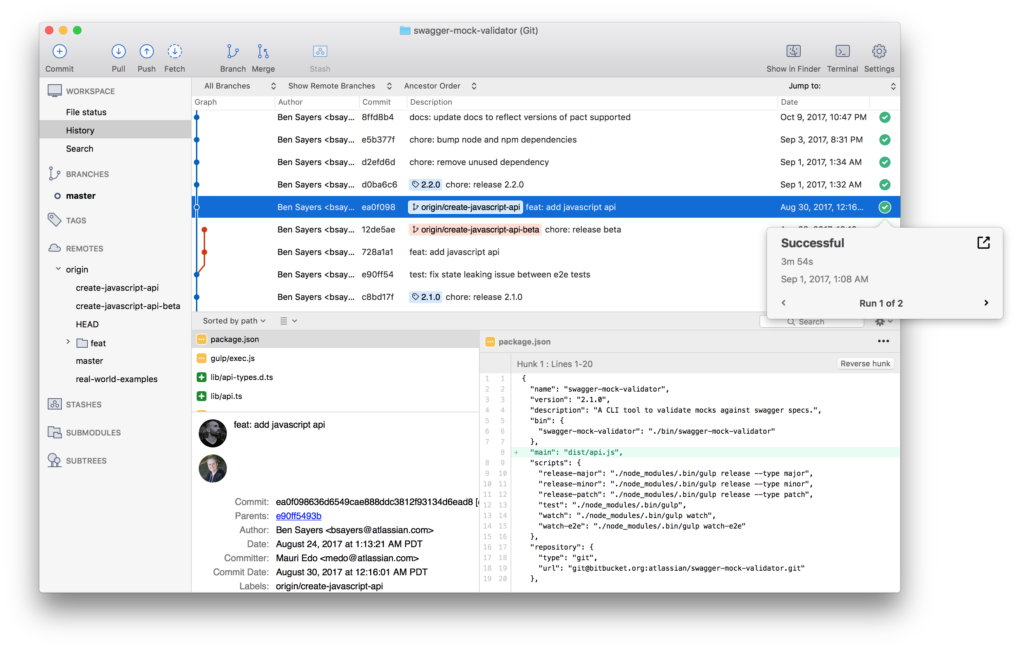Mercurial Demo Mac OS
- Mac; CPU: Intel or AMD with SSE2 support, 2 cores and 4 threads, 2.6 GHz: Intel Core 2 or newer, 2 cores and 4 threads, 2.6 GHz: OS: Windows Vista or newer: OS X 10.11 or later: DAW. VST 2.4 compatible or Pro Tools 11: AU or VST 2.4 or AAX64 compatible: RAM: 4 Gb: 4 Gb: Disk Space: 250 Mb: 500 Mb.
- Silent installation and uninstallation switches for Mercurial 2.9 For Mac OS X 10.6. Support Download Website Forums Live Demo Software Installation Templates. Over 1000 Predefined Software Templates. Desktop Central helps you to silently install or uninstall software to servers.
- Install instructions. Please extract the application setup to run the game.
- Mercurial Demo Mac Os X
- Mercurial Demo Mac Os Catalina
- Mercurial Demo Mac Os 11
- Mercurial Demo Mac Os Download
About
pepper is a flexible command-line tool for retrieving statisticsand generating reports from source code repositories. It ships withseveral graphical and textual reports, and is easily extendable using theLua scripting language. pepper includes support formultiple version control systems, including Gitand Subversion. Using native languagebindings, multi-threading and a local revision cache, it provides fastaccess to repository data.
MAC OS X测试过的环境为Mactex2011+Lyx2.0。 源代码采用了Mercurial进行版本控制,最近更新版直接用hg clone下来,而对于稳定的版本可直接去Downloads区下载。 【使用简介】 使用之前先确认安装好Xelatex以及必要的中文字体,Lyx软件推荐安装。详见scutthesis.pdf相关章节。. It is a native OSX GUI client for Mercurial. It is modern and fully multi-threaded using Grand Central Dispatch and threading goodness. It has a clean interface and allows multiple repositories per document, using a standard mac sidebar interface. It incrementally loads data so its very fast.
Please see the Gallery page for a quick look on output imagesgenerated by some of pepper's built-in graphical reports.
pepper is free and open-source software, released underthe GNU General Public License. Feature suggestions,bug reports as well as report and code contributions arewelcome!
Feature overview:
- Many built-in reports, including lines of code, author contribution andother activity charts.
- Custom report scripts can be written in Lua. AGnuplot interface is provided for easygraphical output.
- Support for multiple repository types. Currently, backends forGit, Subversion.and Mercurial are available.
- Fast repository access by using native libraries if possible (i.e.,the SVN backend uses the Subversion C API, and the Python C API is usedby the Mercurial backend).
- Fast local diffstat and meta-data cache using zlib compression.
News
pepper-0.3.3 is now available. This release includes a number ofbug-fixes and stability enhancements and enables compilation withSubversion 1.9. Mac OS X compatibility has been improved, too.
The homepage is now hosted by GitHub athttps://jgehring.github.io/pepper. Old Sourceforge URLs willautomaticelly redirect to the new location.
Mercurial Demo Mac Os X
I'm happy to announce that source and binary packages are nowavailable for both DebianSid and Ubuntu13.04 'Raring Ringtail'.Thanks go out to the respective maintainers!
I'm happy to announce that version 0.3.2 of pepper is now available. Thisrelease fixes compilation with GCC 4.7 as well as some minor memoryleaks. As usual, you can find source tarballs the Download section.
I've just pushed the first version of a repository statisticsserver to GitHub. peprservis actually a Lua report script for pepper, utilizing theXavante HTTP web server. Themain intention for this project is providing a backend for servingrepository statistics to other web applications, like repositoryinterfaces or bug trackers.
A live demo using the official Gitrepository is running athttp://jgehring.net:9000, and the sourcecode is available on GitHub.
I'm happy to announce that version 0.3.1 of pepper is now available. Thisrelease brings the usual fixes as well as new features. Experimentalsupport for using LevelDB as abackend for the revision cache has been added. The built-in Gnuplotinterface received a function for pie charts, which is alreadyused by the new authors_pie report and the new --pie flag forthe filetypes report. Furthermore, there's a new report calledvolume which closely resembles the commit volume report fromOhloh.
The list of bugs that have been fixed in this release includes an issuethat broke plotting on Mac OS X and some headless environments. Repositorydetection for working copies handled with Subversion 1.7 has been fixed, too.
A more detailed listing of the changes can be found in the changelog, source tarballs are available at the Download section.
The Gallery has been updated with new examples, nowusing a pretty Gnuplot style based on this GuidoLabsarticle.
Source archives and binary packages for various systems. See WhatsNew for information on upgrading.
Contents
- Binary packages
1. Binary packages
1.1. Windows
Like TortoiseSVN, we recommend turning off the indexing service on the working copies and repositories, and excluding them from virus scans.
The following installers can be used from Windows XP onwards:
All-in-one installer with TortoiseHg 5.4.2 and Mercurial 5.4.2; comes with Windows Explorer 'shell' integration. | ||
MSI installers | Needs admin rights to install, less friendly with manually installed extensions than InnoSetup version. | |
5.1 InnoSetup-based installer (exe) | Does not require admin rights to install. | |
Python 2 modules | Installs Mercurial source as Python modules, requires Python 2.7 installed. Recommended for hgweb setups and extensions with non-standard dependencies. | |
Can install Mercurial, but abstraction layers introduce a potential source of error. Not recommended. | ||
Self-contained install that allows easy hacking on the Mercurial source and testing of unreleased versions. | ||
Most of the above installers are from thg-winbuild, which has nightly builds of Mercurial and TortoiseHg.
1.2. Mac OS X
Mac OS X packages are available on the downloads page
Fink: install with 'fink install mercurial' - 3.3
macports: install with 'sudo port install mercurial' - 3.3
homebrew: install with 'brew install mercurial' - 3.8.1
TortoiseHg for Mac available here - 3.7.3
1.3. Linux (.deb)
Debian
Debian sid (unstable) - 5.5.2
Debian bullseye (testing) - 5.5.2
Debian buster (stable) - 4.8.2
Debian stretch (oldstable) - 4.0
Ubuntu
Ubuntu Groovy - 5.5.1
Ubuntu Focal - 5.3.1
Ubuntu Bionic - 4.5.3
Ubuntu Xenial - 3.7.3
Mercurial (from 1.0 onwards) is packaged for Debian-related distributions as two packages, mercurial and mercurial-common - you only need to care about this if you are downloading .deb files for manual installation - otherwise, APT dependency handling will take care of this for you when you install mercurial.
Another way to get .deb packages is to build them from a Mercurial source repository with make deb (builds on local system) or make docker-<distro>-<codename> (e.g. docker-debian-stretch or docker-ubuntu-bionic, see contrib/packaging/Makefile).
To get the latest Mercurial version, instead of the old versions listed above, try:
(see the full answer on stackoverflow)
1.4. Linux (.rpm)
Since Mercurial version 3.4, the Mercurial project provides packages for the following systems:
Centos 5 (includes a python2.7 install)
Centos 6
Centos 7
You can download, install and upgrade the packages manually.
You can also add it as a 'yum' package repository and get automatic updates: Add the following file at /etc/yum.repos.d/mercurial.selenic.com.repo and run yum install mercurial.
Mercurial is stable and won't break on automatic updates. Mercurial do however not promise API stability so an update might break extensions or tools using Mercurial internals.
Mercurial Demo Mac Os Catalina
Similar Fedora packages can be built from a Mercurial source repository with commands like make docker-fedora21. 'Unsupported' platforms can use contrib/buildrpm directly.
You can also install the package from your distribution
Mandriva: install with urpmi mercurial - latest revision available
Fedora - latest version is available within few days after release, install with yum install '*mercurial*'
Fedora Projects EPEL for RHEL and CentOS 5: 1.3.1, install with yum install '*mercurial*'
openSUSE - latest version is available shortly after release in the devel:tools:scm repository
Ark Linux - 1.6.2
OpenPKG - 1.4
1.5. Linux (others)
Arch Linux - 4.6.2
Gentoo ebuild: install with emerge mercurial - 4.6.2
T2 SDE - 4.6.2
Slackware - 4.6.2
Optware cross compilation ipk - latest for Python 2.4 and 2.5

1.6. Solaris
unixpackages.com - SPARC/Solaris 2.6-10 packages, x86/Solaris 8-11 packages - 2.3 (8 & 9), 4.2 (10 & 11)
OpenCSW: solaris package mercurial-3.8.2, sparc/solaris, x86/solaris.
1.7. AIX
Mercurial for AIX 5.2 and later - 3.0.2
1.8. BSD
FreeBSD; use pkg_add for installing - 4.6 (on 2018-07-16)
NetBSD packages compiled from pkgsrc - always very up-to-date, currently 4.6.1
1.9. Plan 9 from Bell Labs
To build from source, see: Plan9FromBellLabs
- Binary packages are available from fgb's contrib:
1.10. Other
If you didn't find your favorite distro/package manager above, or if the package version listed on this wiki page seems too old, try https://repology.org/metapackage/mercurial/versions.
2. Source packages
Source code of released versions of Mercurial can be downloaded as usual .tar.gz files at https://www.mercurial-scm.org/release/.
The hg-stable repository leads to stable releases - download snapshot.
The hg repository is the main development repository - download snapshot.
Check DeveloperRepos for other relevant developer repositories where you can clone the hg source.
After getting the source, continue to UnixInstall or WindowsInstall for help with installing.
3. Using pip
Mercurial can also be installed from PyPI with pip, which has shipped with Python since 2.7.9 and 3.4 or can be installed using the instructions on https://pip.pypa.io/en/stable/installing.html.
To install with pip you must have the same C compiler used to compile Python installed as well as the development headers for Python (typically called python-dev or python-devel on Linux).
You may then install Mercurial simply by executing pip install Mercurial.
4. Using conda
Conda is a cross-platform package manager with a focus on Python. You can install mercurial into a python2.7 conda environment with the following invocation:
This should work on OSX, Windows, and Linux. If you would like to update the conda package, see the instructions at https://github.com/conda-forge/mercurial-feedstock

5. Using easy_install
Mercurial Demo Mac Os 11
easy_install is a legacy installation method which has been superseded by pip which should be preferred over easy_install. This method should not be used and is not recommended and will most likely cause conflict with other installs of Mercurial.
Mercurial can also be installed from pypi with easy_install. You will need Python and the C compiler used to build it and easy_install. easy_install might be available in a python-dev or python-setuptools-devel package for your platform or you can grab it from http://peak.telecommunity.com/DevCenter/EasyInstall.
Mercurial Demo Mac Os Download
Unable to find vcvarsall.bat fix error with mingw and install mercurial 1.7.3 with python 2.7
With the right prerequisites you can install the latest version of Mercurial using:
You can get Mercurial using Mercurial:
CategoryProject
Francais, 中文, 日本語